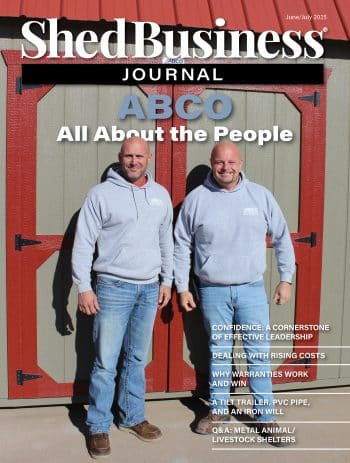How many times in business have you heard the saying, “Verbal agreements work fine—until they don’t”? The simple fact of the matter is things can and will go wrong in business. Conditions change for a number of reasons and you end up hearing another common phrase in business, “Did you get it in writing?”
Many times, in our industry of rent-to-own, manufacturers find themselves asking if all the paperwork required by the rental agencies is really worth it. At what point is enough, enough? It’s true, as a manufacturer, you may find rent-to-own providers that require less documentation than others. While this may appear to be the simplest choice for your company at face value, it may actually cause a larger problem in the long run.
How as an industry can we justify the practice of neglecting proper documentation processes during the early stages of a rent-to-own transaction? Secondly, does the industry, manufacturers and
RTO providers, fully understand the ramifications that our upfront decisions can have down the road?
We need to ask ourselves, “Are we keeping with the clear and concise narrative of who the shed and RTO industry is and the image we strive to uphold?” This narrative relies heavily on caring for the customers and always understanding that they are people, first and foremost, not just revenue. We do our customers an injustice when we do not adhere to collecting all the necessary documentation that will allow their experience with your company, and the RTO provider representing your company, to be the absolute best from start to finish.
Rent-to-own shed transactions provide a service to a customer base that may not have the alternatives to traditional financing. It is a no-credit check process that encompasses a wide range of customer histories. There is no denying that pickups, whether voluntary or non-voluntary, happen in our business. Proper documentation on landowner permission forms at point of sale can greatly ease the burden a driver may face in the field at time of delivery or pickup. A detailed and specific contract can also provide the clarity and sense of security a customer needs in order to keep from feeling blindsided on pricing and terms. An extensive customer data sheet provides the tools your RTO provider needs to best represent your company when contacting for payments, locating overdue customers, or serving legal documents to appropriate individuals if the need arises.
These are just some of the examples of the proper paperwork that, when collected at point of sale, can have a large impact on your company’s reputation in the shed industry with the public. The average consumer prefers to feel they are entering into a well thought out and organized transaction. There are immense benefits to having detailed, unambiguous, and well-written documentation
in all business transactions, including customer, suppliers, contractors, and RTO providers.
Remember these four words: Get it in writing. You’ll save a lot of time and money for your business if you do. The race to the bottom always ends with everyone on the bottom.
[starbox]




